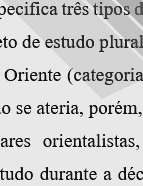

................................
At stake here was an elaboration of a Marxist vision of the History of Portugal, which was not even lacking in the practice of synthesis conventionally employed in National History (Torres, Portugal. Uma Perspectiva da sua História [Portugal - A Perspective of its History] 1974; Castro, Lições de História de Portugal [Lessons in the History of Portugal I], 1982; Castro, Lições de História de Portugal II [ Lessons in the History of Portugal II].
The shift in Marxism from a criticism of the past's nationalisation to the assertion of an alternative national past was part of a broader turnaround within the communist movement which led Marxist intellectuals and communist leaders to hold themselves up as the best representatives of the nation and the people. The historical circumstances of this shift - from the failure of the world revolution in the aftermath of 1917 to 'socialism in a single country', to the adoption of an anti-fascist strategy in the 1930s and the nationalisation of anti-colonialism - are well known, their expression covering an enormous thematic range, from literature to economics and sport, and also encompassing history (Mevius, The Communist Quest for National Legitimacy in Europe 1918 - 1989, 2011; Neves, Comunismo e Nacionalismo em Portugal [Communism and Nationalism in Portugal], 2008).
Broadly speaking, it may be said that the content of the alternative vision of the national past constructed by the communists was driven by the tension between two great processual forces, which had battled against each other throughout almost all Portugal's past: on the one hand, the advent of the modernity process, which had its peak in the revolution of 1383, although also expressive in 1820 and even in 1910; on the other, the persistence of a counter-modernity, resurgent from 1926 onwards, in the wake of the Inquisition and episodes such as the loss of independence at the hands of Philippine rule in 1580.
The main criterion presiding over this division of forces - which, while corresponding to the Hegelian and Marxist dialectic scheme, was also akin to visions such as those of António Sérgio and Vitorino Magalhães Godinho - was social in nature.
